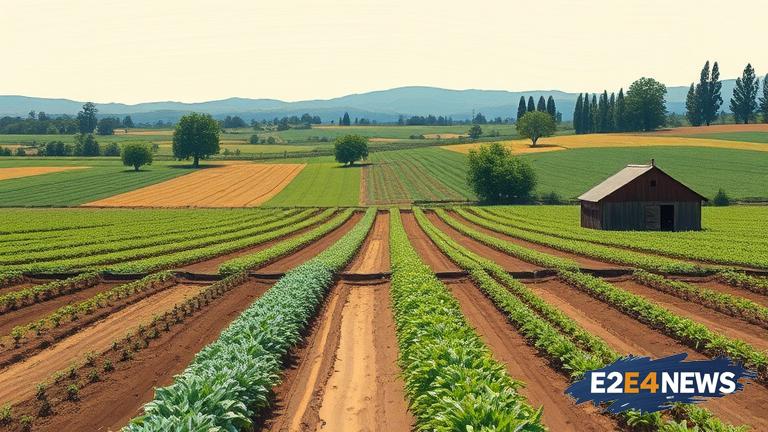Solano County, located in the heart of California, is renowned for its rich agricultural land and innovative farming practices. The county’s farmers are at the forefront of sustainable agriculture, embracing cutting-edge techniques to minimize their environmental footprint while maximizing crop yields. With a strong focus on soil health, water conservation, and biodiversity, Solano County farmers are setting a high standard for the industry. One of the key strategies employed by these farmers is the use of regenerative agriculture, which involves practices such as no-till or reduced-till farming, cover cropping, and integrating organic amendments into their soil. This approach not only enhances soil fertility but also helps to sequester carbon, reducing the farm’s overall carbon footprint. Additionally, many Solano County farmers are adopting precision agriculture techniques, leveraging advanced technology such as drones, satellite imaging, and precision irrigation systems to optimize crop growth and reduce waste. The county’s farmers are also prioritizing water conservation, implementing efficient irrigation systems and using drought-resistant crop varieties to minimize water usage. Furthermore, Solano County is home to a thriving community of organic farmers, who are dedicated to producing high-quality, chemical-free produce. These farmers are using natural methods to control pests and diseases, such as introducing beneficial insects and using organic fertilizers. The county’s agricultural industry is also supported by a strong network of local organizations, including the Solano County Farm Bureau and the Solano County Agricultural Commission. These organizations provide valuable resources and guidance to farmers, helping them to stay up-to-date with the latest research and best practices. In addition to their environmental benefits, Solano County’s sustainable farming practices are also having a positive impact on the local economy. By supporting local farmers and choosing to buy locally grown produce, consumers are helping to keep money within the community and promote economic growth. The county’s agricultural industry is also creating jobs and stimulating innovation, with many farmers and entrepreneurs developing new products and services related to sustainable agriculture. As the global demand for sustainable food continues to grow, Solano County is well-positioned to become a leader in the industry. The county’s farmers are already exporting their products to countries around the world, and their reputation for high-quality, sustainably produced food is attracting attention from top chefs and restaurants. Despite the many successes of Solano County’s agricultural industry, there are still challenges to be addressed. One of the main concerns is the impact of climate change, which is altering weather patterns and making it more difficult for farmers to predict and prepare for extreme weather events. To address this issue, the county’s farmers are working together to develop new strategies for building resilience and adapting to the changing climate. Another challenge facing the industry is the need for greater diversity and inclusion, with many farmers and farm workers from diverse backgrounds facing barriers to entry and advancement. To address this issue, local organizations are working to provide training and support to underrepresented groups, helping to create a more equitable and inclusive agricultural industry. Overall, Solano County’s farming industry is a model for sustainable agriculture, demonstrating the potential for farming to be both environmentally friendly and economically viable. As the industry continues to evolve and grow, it is likely that Solano County will remain at the forefront of innovation and best practices, inspiring other farmers and communities around the world to follow in their footsteps.





